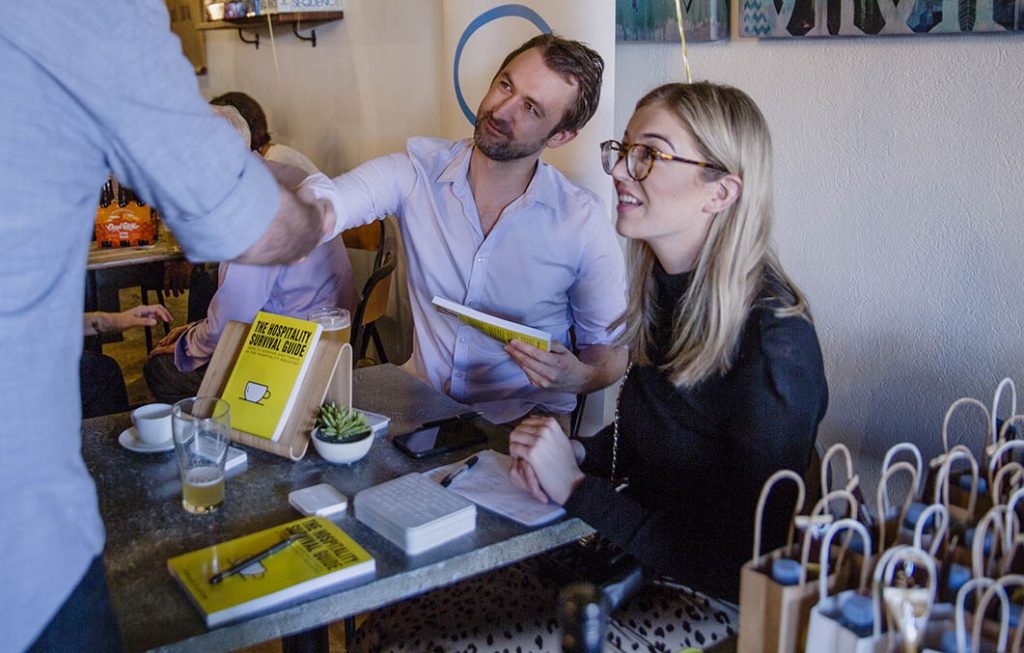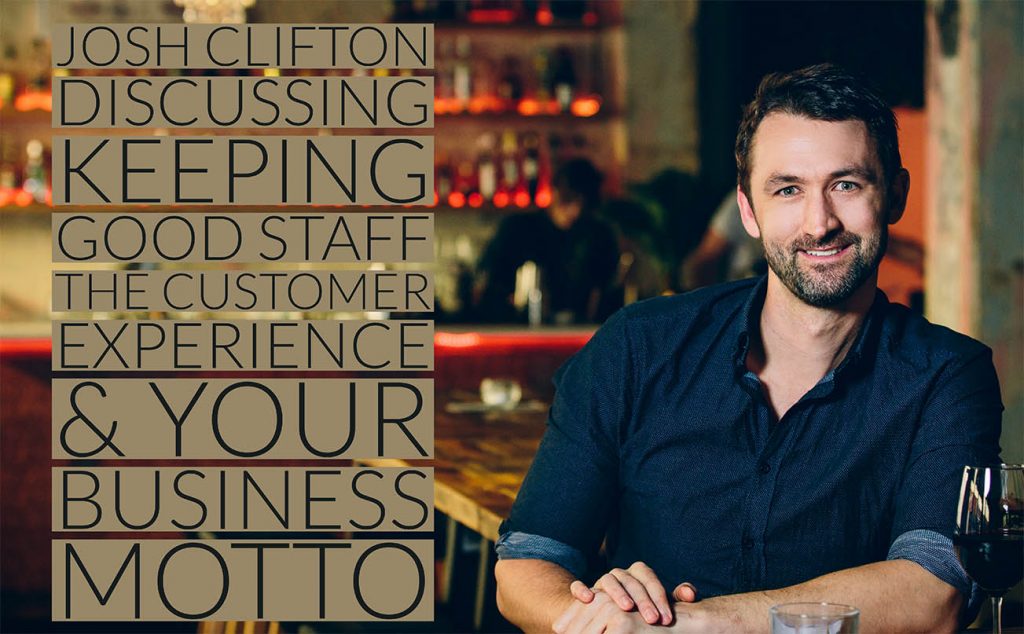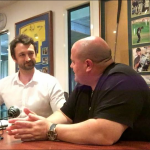We here at Hospitality Talk have spoken with a lot of movers and shakers within the industry. Now we’ve finally sat down and recorded one of our many fruitful conversations, this time discussing Josh’s new book and some of the most important points that have resonated with Peter and fellow leaders in the hospitality industry.
Josh’s book, The Hospitality Survival Guide: How to Survive and Thrive in the Hospitality Industry, delves into topics that originally inspired the podcast in the first place. Running a café comes with certain sets of challenges that may not be discussed enough within the industry. Staffing and leadership issues are not unique to hospitality, but the nature of the business calls for unique solutions.
Find and Keep Good Staff
 One of the biggest challenges in hospitality is finding and retaining good staff. While every café, restaurant, and bar offer a product, the experience is rarely complete without face-to-face interaction with the customer. Customers come to a café not just because of the coffee, but also because of the particular atmosphere that allows them to relax and enjoy themselves – and service plays a big part in that. In order to interact with customers effectively, Josh says, “We need to encourage people to be the best version of themselves.”
One of the biggest challenges in hospitality is finding and retaining good staff. While every café, restaurant, and bar offer a product, the experience is rarely complete without face-to-face interaction with the customer. Customers come to a café not just because of the coffee, but also because of the particular atmosphere that allows them to relax and enjoy themselves – and service plays a big part in that. In order to interact with customers effectively, Josh says, “We need to encourage people to be the best version of themselves.”
The key to this is in identifying the strengths, weaknesses, and passions of each staff member. Management and team leaders can then find ways to support staff, whether that’s through focusing on their strengths, honing new skills, or supporting their projects and passions that take place outside of work. “It’s an obligation and a duty.”
While one can identify some of these traits in an interview, it takes time to really get to know people, even if you work with them every day. One way to do this is through meetings. Meetings are a time to discuss the wins and losses, share successes and concerns, and for staff to get to know each other. Just like with personal relationships, it’s vital to catch up with employees every now and again to build and reinforce the relationship. And in the hospitality industry, good relationships between staff and management are as important as those between staff and the customer.
Attitude
Josh hires on attitude before skill sets, based on his belief that attitude is fundamental. “It’s much easier to work on skills than attitude,” he says. If someone doesn’t have quite the right skill set for the job, “a skill can be taught.” From his own experience, Josh acknowledges that it’s a lot harder to change somebody’s attitude than to teach someone new skills. Someone with the wrong attitude, no matter how skilled they are, is likely not going to get along with their colleagues. This often creates long-term interpersonal problems within staff that are difficult to resolve. Someone with the right attitude is more likely to want to build that skillset and become a better team member.
Craft a Business Motto and Customer Experience Promise
Another way to rally employees together is to come up with a business motto, and swear by it. This motto would be the kind of thing that’s put up in a place where staff can see the message every day, and managers as well as staff have to buy into it. If the leadership isn’t following the business motto, then staff members have little reason to, either.
It’s also important to define the customer experience promise. This promise outlines the expectations customers will have during their experience, as well as what is expected of the customer. The word “promise” is very deliberate here, implying a level of trust and agreement between the two parties. It creates accountability not just between management and staff, but also between staff members. As with the business motto, it’s vital for everyone, from the owners to the dishwashers, to follow through with that promise.

The hospitality industry is a tough one to get into. Josh created the Australian Café Owners Association in order to provide the much-needed support in an otherwise ultra-competitive, volatile industry. It was the entire purpose behind the book and the podcast, to share experiences and information with people to help them succeed. These tips and more are all present in the book, which is available now.
Go to Josh’s website, https://www.masterhost.com.au, and you can get the first four chapters of Josh’s book free if you hit subscribe. Or order the entire book in the website’s shop, on Amazon, or on Book Depository. You can also find it at a bookshop near you.
Josh and Peter’s Key Takeaways
-
Everyone’s got a book in them, whether it’s a story, passion, or wealth of knowledge to share.
-
Look for employees with the right attitude for your establishment – it’s much easier to teach new skills than to change somebody’s attitude.
-
Regular meetings strengthen staff relationships and cohesion; focus on the successes as well as the challenges.
-
Support employees in whatever their passions and strengths lie, even if it’s not strictly related to the job. If they feel supported at work they’re more motivated to do a better job.
-
Role-play ideas with staff to rehearse how to deal with customer, team, and supplier problems.
-
Outline a clear business motto, and be sure to live by that motto so that employees can follow your lead.
-
Create a customer experience promise, outlining what both staff and customers should expect when at your establishment.
Podcast: Play in new window | Download
Subscribe: RSS











